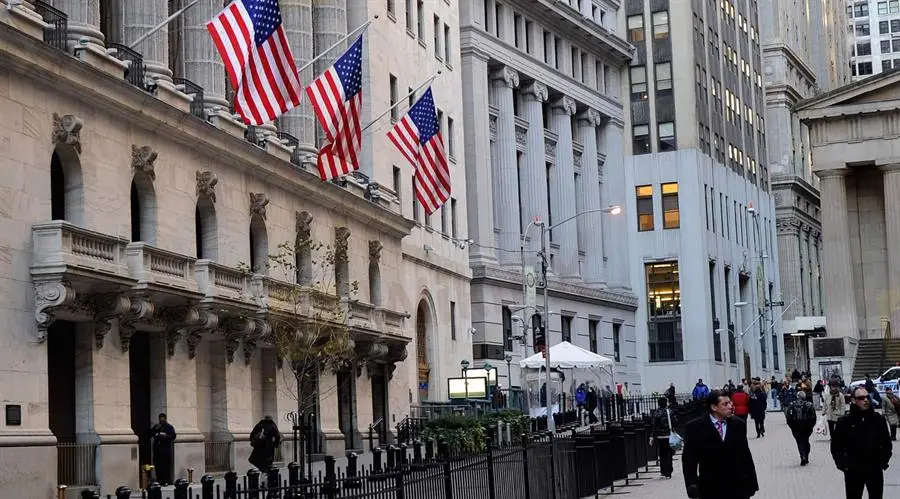简体中文
繁體中文
English
Pусский
日本語
ภาษาไทย
Tiếng Việt
Bahasa Indonesia
Español
हिन्दी
Filippiiniläinen
Français
Deutsch
Português
Türkçe
한국어
العربية
New York Fed Partners with US Banks on 3-Month Digital Dollar Project
Abstract:Some of the banks include BNY Mellon, Citi, HSBC and Wells Fargo. The Spanish banking community earlier this week launch a digital euro pilot project.

The Federal Reserve Bank of New Yorks Innovation Centre (NYIC) in partnership with some US banking giants has kickoff a three-month digital dollar proof-of-concept (PoC) project.
Take Advantage of the Biggest Financial Event in London. This year we have expanded to new verticals in Online Trading, Fintech, Digital Assets, Blockchain, and Payments.This project “will explore the feasibility of an interoperable digital money platform known as the Regulated Liability Network (RLN),” the US banking community noted. The goal of the project, the reserve bank further explained on Tuesday, is to “explore the feasibility of an interoperable network of central bank wholesale digital money and commercial bank digital money operating on a shared multi-entity distributed ledger.”

Participating Banks
Some of the major banks and financial institutions participating in the projects are BNY Mellon, Citi, HSBC, Wells Fargo, PNC Bank, TD Bank, Truist, U.S. Bank and Mastercard, among others. International messaging service provider, SWIFT, is also a part of the project. These organizations are to issue simulated digital money or tokens and settle transactions on them through simulated central bank reserves on the ledger.
“The PoC will also test the feasibility of a programmable digital money design that is potentially extensible to other digital assets, as well as the viability of the proposed system within existing laws and regulations,” the banks explained in a join-statement. NYIC added that the project will be conducted in a test environment and will adopt only simulated data.
The Center further clarified that the project is not targeted at advancing any specific policy outcome. The project also does not mean that the Federal Reserve “will make any imminent decisions about the appropriateness of issuing a retail or wholesale CBDC, nor how one would necessarily be designed.”
Digital Euro Pilot
The launch of the new digital dollar project comes days after up to 30 Spanish banks partnered to carry out new PoC trials to measure the impact of issuing a digital euro by the European Central Bank (ECB). The Spanish banking community project comes almost two months after the ECB selected five companies including Amazon to participate in a digital euro payment prototyping exercise.
The prototyping exercise, which will focus on different specific payment usage of the digital euro, is part of the ECB's two-year digital euro investigation project. The exercise is expected to be completed during the first quarter of 2023.

Disclaimer:
The views in this article only represent the author's personal views, and do not constitute investment advice on this platform. This platform does not guarantee the accuracy, completeness and timeliness of the information in the article, and will not be liable for any loss caused by the use of or reliance on the information in the article.
Read more

5 Risks associated with Grand Capital
You can avoid fraud, crypto scams, and similar traps simply by staying informed. If you regularly follow forex news, there’s a lower chance that you’ll fall victim to such scams. Being aware is the only way to stay safe. That’s why you also need to know about the Grand Capital broker and why it should avoided.

Exposed: Ibell Markets - A Scam Broker That Does Not Allow Withdrawals
Ibell Markets adds to the infamous list of scam brokers who think about acquiring customers and their investments. But what about the withdrawal? Do they allow? Read this to find out.

Avoid Trendify: 5 Red Flags Revealed
Trendify is nothing more than a scam broker. It is one of those forex brokers that acts genuine but is actually full of red flags. Before you invest and fall victim to its investment scam, its better to check out the risks involved with Trendify.

Forex Interbank Rate & How It Influences Your Trading
A forex interbank rate is nothing but the wholesale currency exchange rate that banks and other major financial institutions use to trade currencies among themselves. Read more about it.
WikiFX Broker
Latest News
Forex Hedging: Is It a Trader’s Safety Net or Just an Illusion?
OPEC+ members agree larger-than-expected oil production hike in August
FCA clarifies expectations on bullying, harassment and violence to deepen trust in financial service
Asia-Pacific markets mixed after Trump shifts goalposts on tariffs again
XS.com Expands Global Reach with Landmark Kuwait Launch
European markets set to open mixed amid fresh U.S. tariff threats
Top Wall Street analysts are pounding the table on these 3 stocks
Stock futures fall after Trump team says tariffs will go into effect on Aug. 1: Live updates
10 Unlicensed Brokers Exposed – Check Now to Stay Safe!
S&P 500 futures fall slightly as Trump threatens new tariffs, Tesla shares drop: Live updates
Currency Calculator


